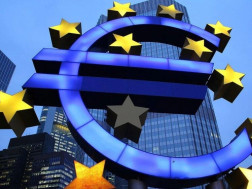The internet has become a key element of our daily life. It is so easily accessible on our phones that for some it might seem hard to live without it.
In 2022, 90% of people aged 16-74 in the EU reported they had used the internet during the previous 3 months. This share ranged from 79% in Bulgaria to 98% in Luxembourg. Internet use has grown rapidly in the EU over the years - in 2010 it stood at 67%, and in 2015 at 78%, Eurostat reports.
In 2022, the internet was used mainly to communicate with others, sending/receiving e-mails (77%), instant messaging (72%), to find information about goods and services (70%), telephoning or video calls (66%) and watching internet streamed TV or videos (65%).
A majority of people also used the internet for reading online news sites/newspapers (64%), watching video content from commercial or sharing services (61%), banking (60%), participating in social networks (58%), and listening to music (54%).
52% of people used the internet to seek health information in 2022
At the EU level, in 2022, 52% of people reported using the internet to seek health information, while 33% said to have used it to make an appointment with a practitioner via a website, 24% accessed personal health records online, and another 18% used it to access other health services via a website or app instead of having to go to the hospital or visit a doctor.
Among EU Member States, Finland registered the highest share of people using the internet for health-related activities, with 81% of people using the internet to seek health information and 79% accessing personal health records online.
When it comes to using the internet to seek health information, Finland was followed by the Netherlands (78%) and Cyprus (73%). In contrast, Romania (29%), Germany (37%) and Bulgaria (39%) had the lowest shares of people using the internet for this end.
As for using the internet to access personal health records online, Denmark had the second highest share of people (66%) after Finland, and was followed by Estonia (59%). Germany was the Member State with the lowest share of people accessing the internet for health records with only 2%, followed by Romania (8%) and Slovakia (14%).
















